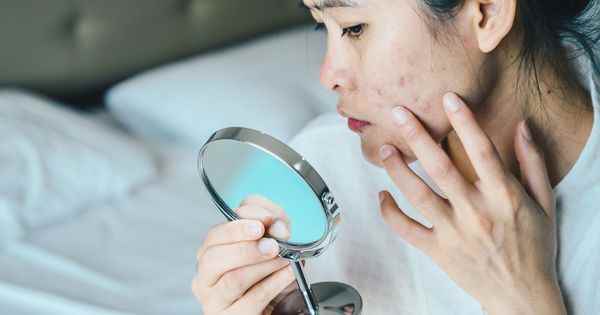Published 4 hours ago,
Reading 1 min.
A marine microalga common in the Atlantic Ocean could eliminate 3 species of bacteria responsible for acne. It was discovered by the French Research Institute for Exploitation of the Sea and has just been patented.
Acne today concerns 80% of adolescents and young adults between 12 and 20 years old. In adults, it is increasingly common and affects 25% of women, according to Ameli. It is a very common skin disease that has real psychological repercussions.
To treat it, scientists from the French Research Institute for the Exploitation of the Sea (Ifremer) have identified a marine microalga common in the Atlantic Ocean and in coastal waters. The competition of Ifremer, La Rochelle University, the CNRS, the University of Limoges and the University Hospital of Nantes have also patented this microalgae extract.
A photoactivatable algae
“Our composition is a natural extract of Skeletonema marinoi. After extraction with ethanol, the solution is simply dried and incorporated into a cream or gel” says Jean-Baptiste Bérard, marine biology engineer at Ifremer.
Next, the substance should be applied to the face, then exposed to natural or artificial light. Indeed, these molecules are subjected to light, they are said to be photoactivatable. “They react by releasing energy into their environment and thus create other molecules which eliminate the bacteria responsible for acne. The extract also limits the secretion of sebum”.
Consult a dermatologist online
Resistant to three acne-causing bacteria
These microalgae have demonstrated their effectiveness on 3 species of bacteria responsible for acne. “The results obtained show that the extract makes it possible to treat mild forms of acne and, in this sense, to avoid leading to more severe forms. It thus constitutes a potential alternative to the use of antibiotics or retinoids then generally prescribed and can thus contribute to limiting the risks of resistance to these treatments. These first promising results will have to be confirmed by clinical studies” can we read in the press release.
